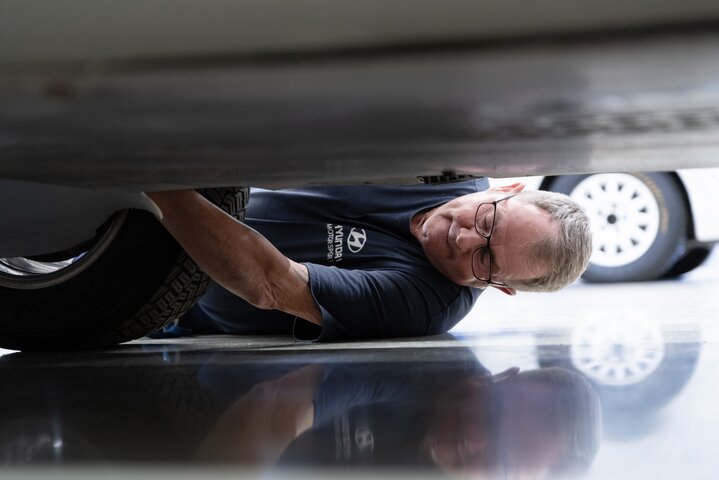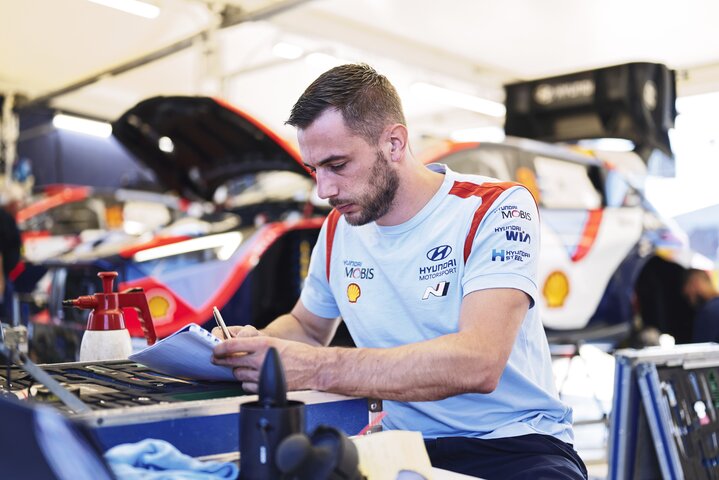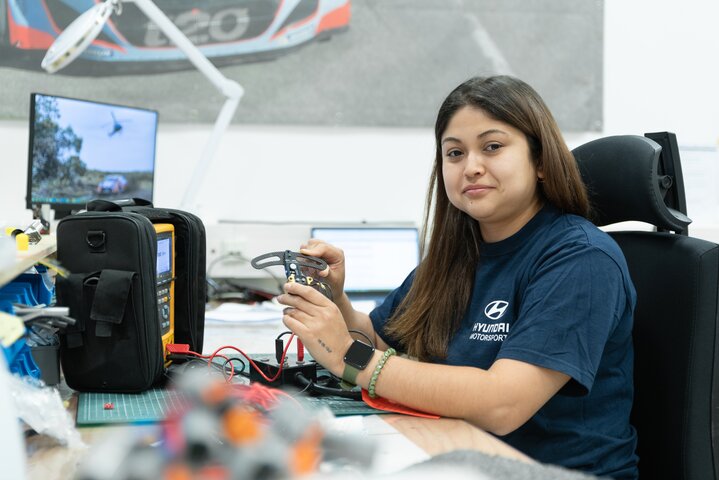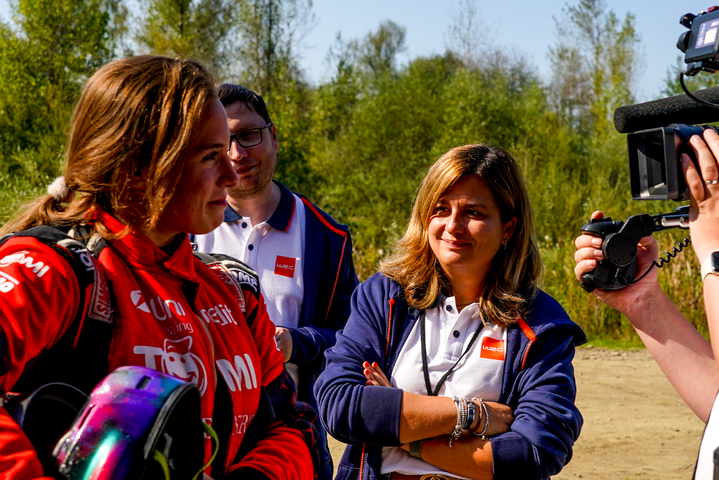Korean and German heritage unite at Hyundai Motorsport with Minchan Jung
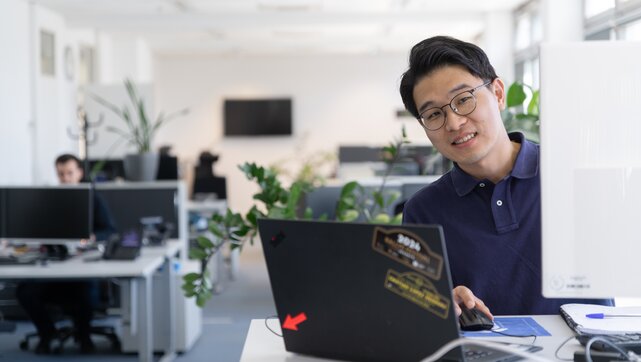
The synergy of diverse cultures has always been a significant part of Hyundai Motorsport. We spoke with Minchan Jung, who joined our family in 2022, bringing his unique experience and skills.
Before this experience at Hyundai Motorsport, Minchan was a test engineer for high-performance vehicles at Hyundai Motor Group’s Namyang R&D Center, in South Korea. He always wanted to gain international experience and exchange ideas in this field. He believed that knowledge in this sector could be transferred to the development of production engineering—the opportunity arrived through the Global Exchange Program, which allowed employees to work in another country for two years to gain valuable connections.
What inspired you to pursue a career in engineering and motorsports?
I have loved cars since I was a kid, and my passion for racing cars and motorsports began at a very young age. If I may add something more special about my father, he was a motorcycle engineer.
During school, I used to get overjoyed and feel proud when I told my mates, “See that motorcycle? That’s what my father has developed. Perhaps this is why I was inspired and decided to pursue engineering!”
Have you noticed any differences in the way tasks are approached in Germany compared to South Korea?
One of the differences I noticed is how we create reports in South Korea. Generally, we spend a lot of time making reports, from selecting specific font sizes to highlighting key points, all according to specific rules. The pictures and colours we choose are less colourful in appearance, and so we focus a lot of time on the overall look of the report. Whereas, in Europe or Germany, we work on sharing information more efficiently and quicker, especially in the motorsport industry.
This experience has taught me to understand and incorporate the two visions—that is, to create impactful reports in a quicker way to covey key information in a timely fashion. Overall, I was trained one way and saw that there are different ways of doing things, and thanks to this experience in Germany, I have widened my views.
Do you see any similarities between Korean and German heritage or values?
We are all human, and I could share numerous differences or similarities. I have been thinking a lot about this topic recently.
Take lunchtime, for example. In Korea, we usually ask each other, “Did you eat lunch?”. It’s not about whether you have eaten or not—it’s about greeting. We simply greet each other as part of our good manners.
Similarly, here in Germany, it happens the same. Although we are on the other side of the world and there are various people from different countries. During every lunch, regardless of our native language, we wish each other “Mahlzeit” in German. It’s astonishing!
Employees at Hyundai Motorsport come from various corners of the globe. Has this diverse environment influenced the way you see things or the way you work?
At Hyundai Motorsport, there are employees from many countries and diverse backgrounds. In South Korea, many employees speak English, but in terms of nationalities, it’s less varied.
This could be the reason why this company and this area of Germany are so special. People from Germany and all over the world come here and connect with one another, creating meaningful synergies.
As an engineer, I work with many people of different nationalities, but one thing we have in common is using the universal language of engineering. We use mathematics, numbers, and data – a common language that allows us to understand each other while working.
How important is it to maintain cultural traditions while living abroad? Do you celebrate any Korean festivity being in Germany to stay connected to your roots?
Since moving to Europe, I’ve thought more about what tradition means to me. I don’t want to show too much my traditional background to people as I try to adapt to the international environment.
However, for me, food is the most important thing when it comes to my roots. I can live without many things, but I cannot live without eating Korean food for more than a month. That’s why my family and I try to cook and eat Korean recipes at home.
Also, in September, we Koreans celebrate a festivity called Chuseok (추석). During this celebration, we eat Songpyeon (송편), a rice cake that we sometimes cook at home or buy from the local food market. We also have various dishes prepared especially for the occasion.
Although we’re more than 8,000 km away from home, I am grateful we can celebrate it here. Traditionally, we bow down to our parents during Chuseok. Thanks to technology and video calls we can maintain this tradition, even if we are miles away.
What has been the most rewarding aspect of living and working in Germany?
I feel rewarded every day for being in this exchange program. I’m a huge motorsports fan and a car enthusiast. There are so many great car museums in Europe, especially in Germany. Whenever my family and I travel, I always ask my wife: “Can we visit a car museum?”. There are plenty of activities related to historical racing to enjoy here in Germany.
Moreover, there are some fantastic circuits and tracks nearby, such as Hockenheim, Nürburgring, and, a little further, SPA—all are very special to me as I have always dreamed of visiting them. I also enjoy seeing the many classic cars commonly found on the streets here in Germany.
As I conclude my time here, I would also like to share a message with all my colleagues: I worked with the ETCR team in my first year and the WRC team during my second year. I want to thank every member of my team. I feel fortunate because I had friendly colleagues, and they never made me feel like an outsider despite coming from a different background and being here for a limited period of time.
When I return home, I will continue to support this team as a fan. Good luck, and as we say in Korean, ‘파이팅!’ (Fighting!).

